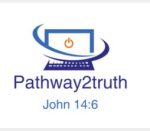Problem: David declares here, “I have not seen the righteous forsaken, nor his descendants begging bread.” But this is obviously not always true. Many of the starving thousands in the world today are Christians. Even the Bible spoke of “a certain beggar named Lazarus” who was in heaven (Luke 16:20). David’s statement seems to be clearly false.
Solution: Several things should be kept in mind about David’s statement. First of all, strictly speaking it is not a universal claim—it is simply a statement about his own personal experience. He begins it by saying, “I have been young, and now am old; yet I have not seen” (v. 25).
Second, he is not claiming that no righteous person ever starves, but simply that he has not seen them “begging bread.” There is a difference.
Third, the context of his statement was the OT Jewish economy wherein no one needed to starve because the Law provided that they could glean in the fields (cf. Lev. 19:10; Deut. 24:21). In this system, there was generally no need to “beg bread”—it could be gleaned freely from the fields.
Finally, like Proverbs, this statement need not be taken universally, but only as a general rule that in a society ordered according to God’s law, those who live righteously will seldom find it necessary to beg for food.

